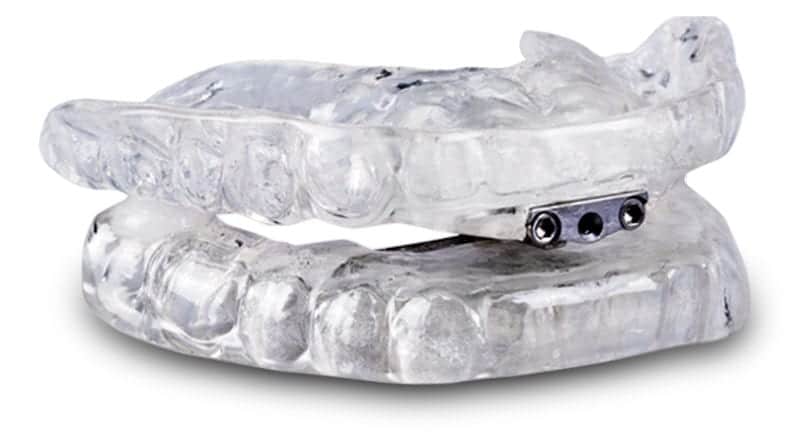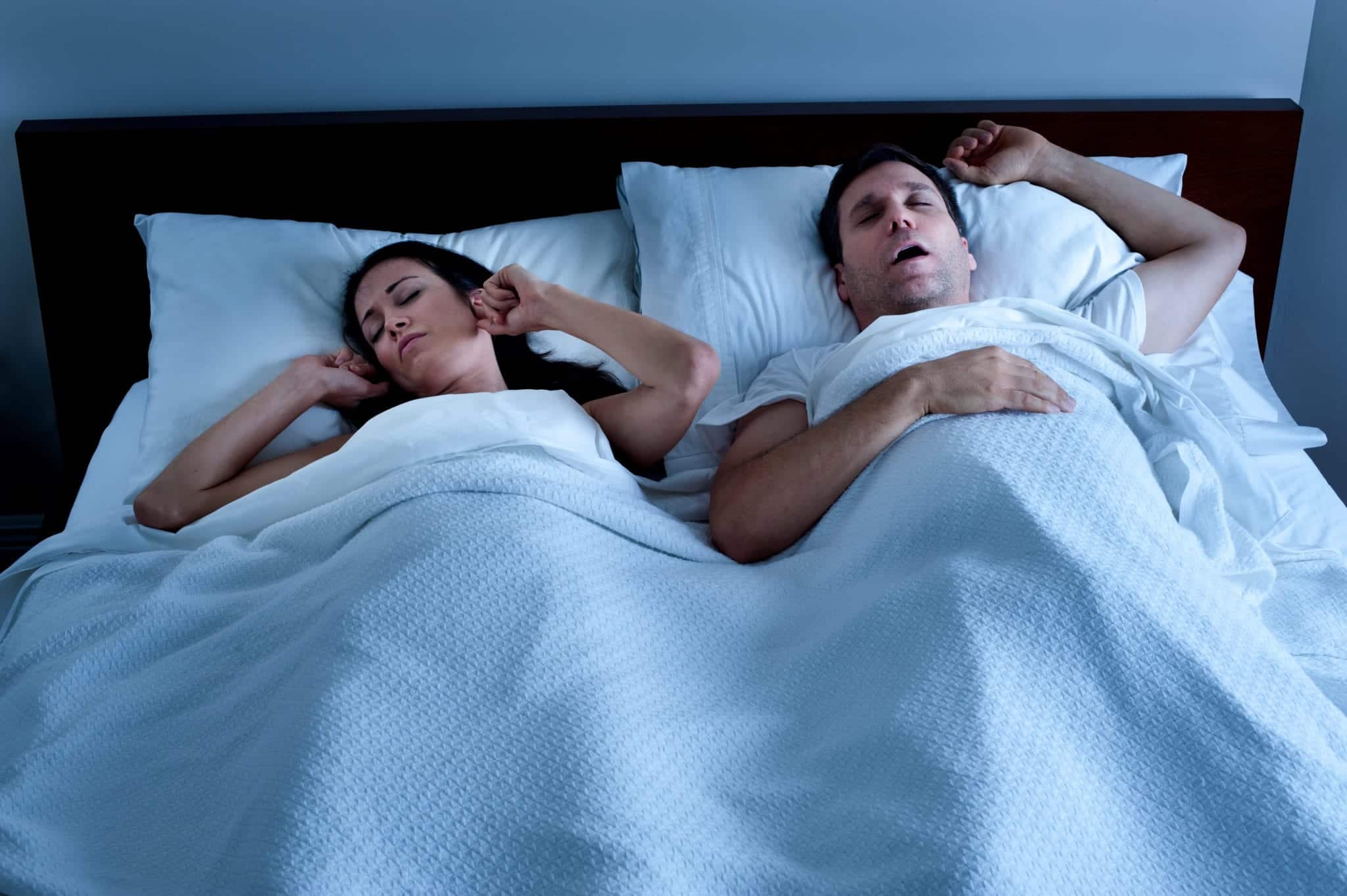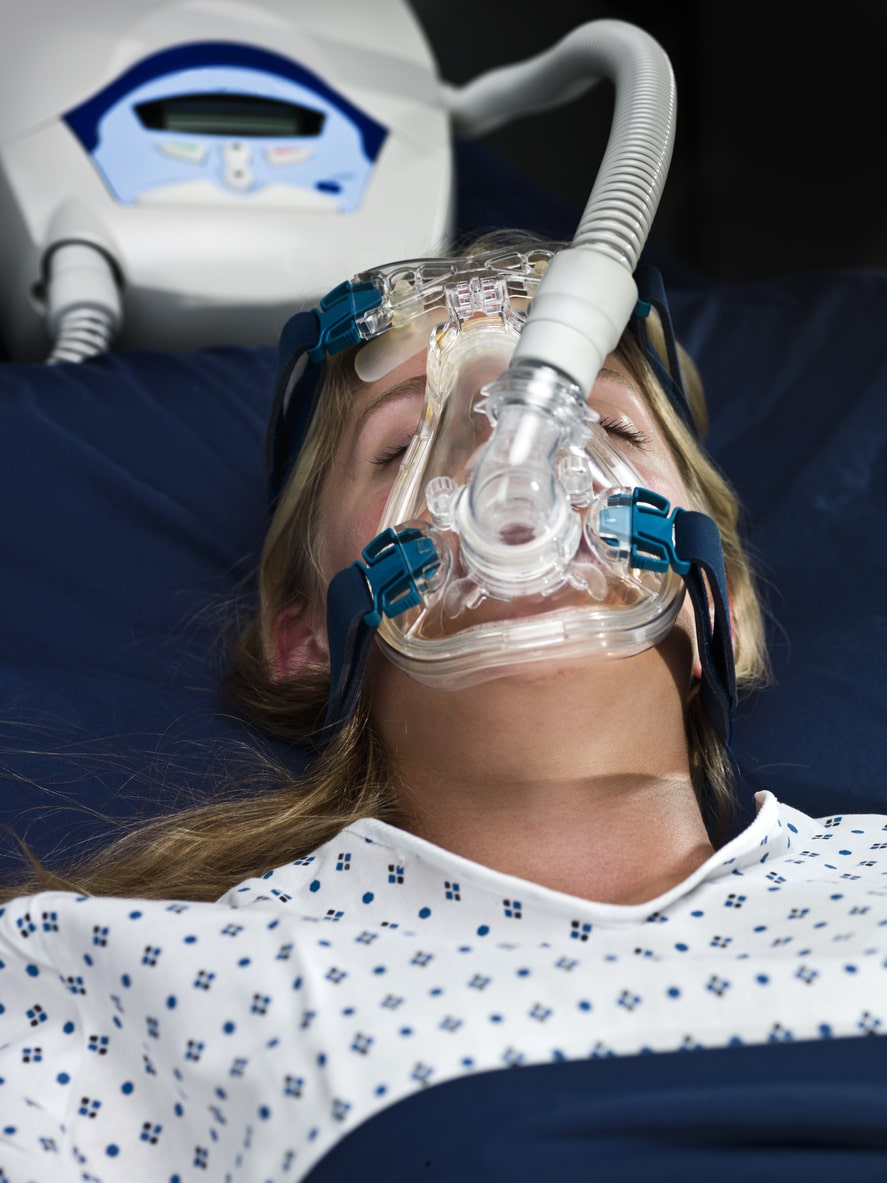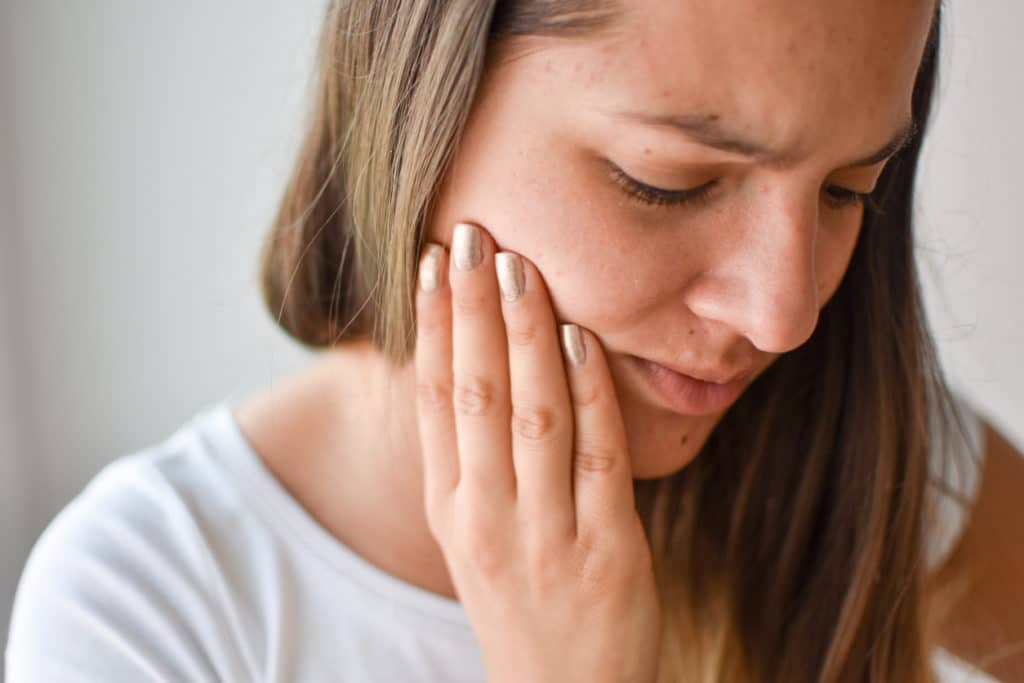Sleep Apnea Treatment With Oral Appliance Therapy

Obstructive Sleep Apnea (OSA) has many subtle symptoms. The most common symptom is snoring frequently and loudly. Chances are, your dentist might be the first to discover if you suffer from sleep apnea. If you suspect you might have sleep apnea, you will want to visit your physician first for a proper diagnosis.
Within your regular dentist checkups which should occur at least twice a year, your sleeping disorder dentist can learn a lot about your specific sleep apnea case and typically how bad it might be in your case. Determining the best treatment is the next step in helping you get a better night’s sleep.
What is sleep apnea?
Sleep apnea is a common sleep disorder where the patient has repeated breathing interruptions while sleeping. These interruptions occur when the upper airway and airflow are blocked during sleep. This may occur many times each night and can be caused by structural abnormalities or brain malfunctions. The interruption is so brief the person usually doesn’t remember this in the morning, and it can happen dozens, or even hundreds, of times each night.
People confuse snoring with sleep apnea, but they are different. Snoring is caused by some resistance to airflow; sleep apnea is blockage of the upper airway. While snoring is a typical symptom, people can snore but not have the condition.7
We treat OSA at Schmitt Dental.
What causes sleep apnea?
Obstructive sleep apnea is a common sleeping disorder. If a person has OSA when they sleep the soft tissues in the back of their throat — the tongue, tonsils, sidewalls of the throat — sag or slide backward and block the airway stopping the person’s breathing. When the brain senses this it awakens the person, making them take in air, often with a snorting sound.
These factors can increase a person’s odds of having or developing obstructive sleep apnea:
- Enlarged tonsils or adenoids
- Cardiovascular problems
- Obesity
- Throat and tongue muscles that are abnormally relaxed
- Nasal congestion
- Smoking
- Family history
How common is OSA?
It’s estimated that over 12 million Americans suffer from OSA, although many don’t know they have the condition, and few do anything about it. This is unfortunate because sleep apnea is much more than snoring — it can lead to a variety of other health issues.
What Are The Symptoms of OSA?
A common problem in determining if you have a sleeping disorder is that it is hard to know if you have interrupted sleep throughout the night. Often, it is a person’s partner who will notice issues concerning your sleep habits such as snoring and issues with breathing. Ignoring these issues can cause risks to your health.
Some Common Signs That You Might Suffer From OSA:

- Being irritable
- Loud snoring
- Insomnia and hard to fall back asleep
- Headaches in the morning
- Sore and dry mouth upon awakening
- Slow mental awareness or function
- Fatigue throughout your day
If you feel you might have OSA or a family member suffers from this condition, you may want to consider giving our dental office a call. We can properly assess your case and develop some next steps in order to treat your sleeping disorder situation.
How is sleep apnea diagnosed?
Training and experience are crucial to the proper diagnosis of OSA. Dr. Schmitt weighs a combination of symptoms such as fatigue or waking up with a dry mouth and throat, along with input from your partner as to whether he or she often hears loud snoring or choking noises while you sleep. In most cases, he’ll have you keep a sleep diary for two weeks. This will include information about what time you went to bed each night, when you woke up in the morning and how many times you woke up each night. From there, he may recommend either a home sleep apnea test or an in-lab overnight sleep test.
OSA Treatment Options
OSA or Sleep Apnea is different for everyone who suffers from this condition. Schmitt Dental Care will assess your particular case and determine the best case for treatment. Based on our findings we will recommend some of the possible treatment solutions.
- Lifestyle Changes – Mild cases can typically be treated through simple lifestyle changes such as losing weight, changing the position in which you sleep, quitting smoking, or administering a sleep appliance to alter your jaw angle while asleep.
- Sleep Apnea Appliance – Resembling a protective mouthguard, a dental appliance is custom-fitted to alter the angle of your jawbone and re-position your tongue while you sleep. This, in turn, opens your airway to create a better night’s sleep without interruption.
- CPAP – Continuous positive airway pressure systems sometimes might be required in more severe cases. Forced air is pushed through a tube, entering a mask while you are sleeping. The air pressure opens the airway and keeps it from shrinking with every breath.
- Surgery – In more extreme cases surgery might be required. Removing tissue in the throat to elevate tight airways or perhaps a tonsillectomy might be the solution.

What Our Patients Have To Say
“Professional and super friendly staff! Very comfortable atmosphere, I always feel welcomed and appreciated. Thanks, Schmitt Dental!” - John M.
Read more patient testimonials here.
What is oral appliance therapy for OSA?
At Schmitt Dental, we use oral appliance therapy for our patients with mild to moderate OSA. The goal of this therapy is to move the lower jaw forward during sleep, keeping the tongue and other nearby tissues from sagging backward enough to block the airway.
Oral appliance therapy uses what is similar to a sports mouthguard or orthodontic retainer. The patient wears it while he or she sleeps. The appliance supports the jaw in a forward position to help keep the airway open. The American Academy of Sleep Medicine believes that oral appliance therapy is the best option for those with mild to moderate sleep apnea.
Dr. Schmitt has extensive experience with this therapy and the wide variety of available appliances — there are over 100 FDA-approved oral appliances! He can help you find the option that works best for you.
Are there side effects to wearing an oral appliance?
Oral appliance therapy can have some minor side effects. These usually resolve once you become accustomed to wearing your appliance at night. These side effects include:
- Excessive salivation
- Dry mouth
- Tooth and jaw discomfort
- Temporary bit changes
Our Schmitt Dental patients feel the benefits of treating their sleep apnea far outweigh the above inconveniences.

What Are The Risks Of Not Treating A Sleep Disorder?
Many people discount the seriousness of sleep apnea, thinking it’s just a little snoring. That’s a risky line of thinking. Untreated sleep apnea can lead to a number of very serious health concerns:
- High blood pressure — Sleep apnea wakes you up over and over during the night. This stresses your body, activating your hormone systems. This raises your blood pressure.
- Heart disease — People with obstructive sleep apnea are more likely to have heart attacks, strokes, and atrial fibrillation.
- Type 2 diabetes — Sleep apnea is common in people with type 2 diabetes. When your body doesn’t get enough rest through sleep it can’t effectively handle insulin.
- Weight gain — Sleep apnea can make your body release more of the hormone ghrelin, which makes you crave carbs and sweets.
- Adult asthma — Those with adult asthma and sleep apnea tend to have more asthma attacks.
- Car accidents — People with sleep apnea are up to five times more likely than normal sleepers to have traffic accidents, and to even fall asleep at the wheel.
Schedule a Consultation
Each of these solutions has its drawbacks, but they remain effective in most cases. To discuss further solutions with our dentist, contact us today at (931) 647-3960 or (931) 552-7745 for our Clarksville offices. With the solutions from Schmitt Dental, you are on your way to a better night’s sleep! Our practice serves Clarksville and the surrounding areas of Tennessee.
